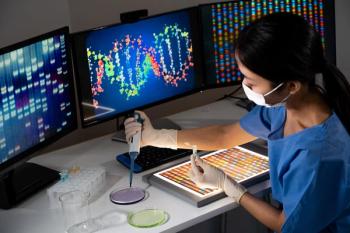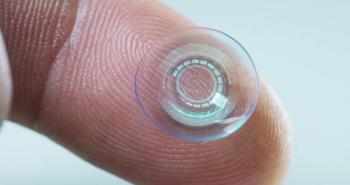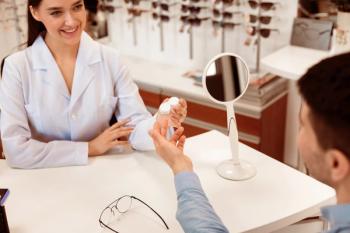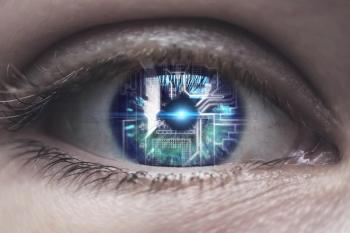
Going blind while using your smartphone
With news sites like NPR and The Washington Post reporting about transient smartphone blindess, be ready for questions from your patients. It is natural to laugh at this random new diagnosis for a term we want to call night blindness, but take if from me-experiencing it firsthand can be alarming. Consider asking patients presenting with monocular transient vision loss about their smartphone use and add it to your list of differentials.
A few years ago, the Northeast had an abnormally cold winter, causing downed utility lines and several power outages. My husband and I decided to brave the cold and stay in our house for the night without a generator despite the fact that the entire neighborhood moved out due to the extreme cold. Off to bed we went, layered in blankets and beanie caps in the total darkness and cold.
I woke up in the middle of the night and reached for my phone to check the time. This usually will lead to a quick check of any text messages or email, easily taking a few minutes. This particular night, I was lying on my left side looking at the screen with my right eye only, and my left eye was closed.
When I put the phone down and opened my eyes. I was terrified. I shot out of bed, woke up my husband and screamed, “I’m blind in my right eye.”
I quickly did the cover test, covered my right eye and could see, covered my left eye…and total darkness. I repeated this a few times, then panic set in. My brain started racing-sudden painless loss of vision in only one eye means a vein occlusion or non-arteritic ischemic optic neuropathy.
Then gradually over a period of several minutes, my vision returned. It occurred to me that the darkness of the room and the brightness of my phone screen was probably to blame. I didn’t think much more of it, and it didn’t reoccur. It was quite a funny story to share with fellow eye doctor friends.
Smartphone strikes again
In my neighborhood, my friends and neighbors know my profession. I have made house calls for viral conjunctivitis, foreign body removal (sand in the eye), phylectenule, and even a hemangioma evautation of the eyelid in a seven-month-old. Of course, all of these house calls are followed with an office visit to myself or another local optometrist.
A few months ago, one of my neighbors, a former neonatal intensive care unit (NICU) nurse turned stay-at-home mom, calls me one afternoon in a bit of a panic. She described to me a few episodes of vision loss in one eye that occurred after using her smartphone in bed. Having had a similar experience, I reassured her that she must have been viewing the phone with the eye that experienced the vision loss. She did state she was lying on her side while using the phone and maybe the pillow was closing off her one eye.
Fast forward to now
Twitter and Facebook have been trending an article about
I understand his concern, n=2 is not very compelling-but my experience and that of my neighbor doubles the occurrence.
The hypothesis, if a person views the smartphone in the dark with only one eye due to closing or occluding the other, the eye viewing the digital device will light adapt while the closed/occluded eye remains dark adapted. If the person then opens the non-viewing eye, the vision will remain dark adapted and clearer in a dark room. The eye viewing the smartphone will have a delay in dark adaptation which can be perceived as transient vision loss and will gradually improve over a period of several minutes.
Dr. Khurana stated his wife tried to recreate this phenomenon and was unsuccessful.
There are many factors to consider: illumination of the smartphone, level of ambient light in the room, how long a person is asleep before viewing his phone, how the non-viewing eye is occluded are just a few.
Digital device use on the rise
The use of digital device use is on the rise for all ages of the patients we serve.
In the U.S., 57 percent of the adult population owns a smartphone and spend an average of 1:55 (almost 2 hours) viewing them daily, according to
Patients of all ages are active on digital devices, according to
Be aware
With news sites like
Newsletter
Want more insights like this? Subscribe to Optometry Times and get clinical pearls and practice tips delivered straight to your inbox.















































